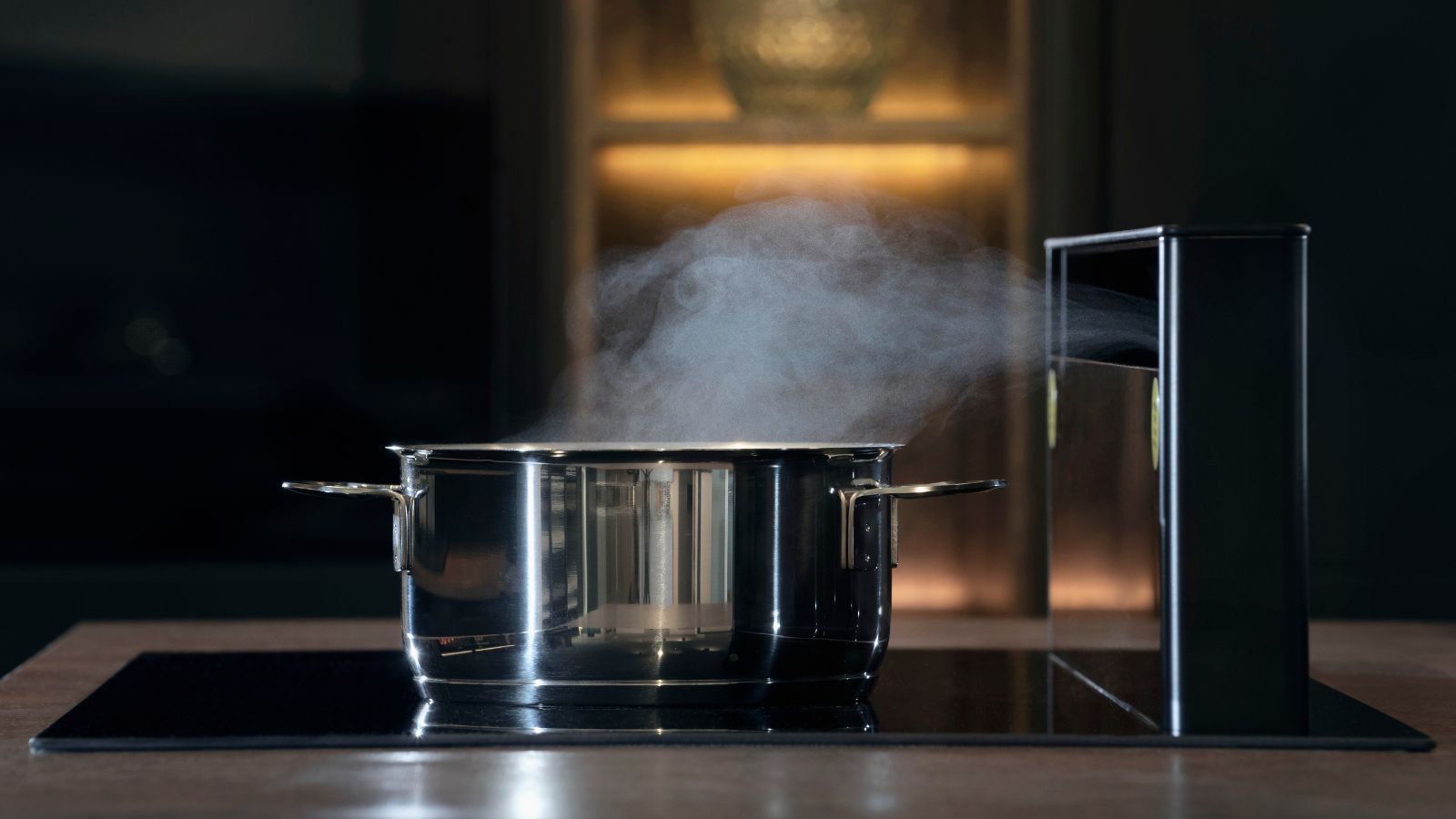
If you're wondering: 'is aluminum cookware safe to cook with?', you’re not alone. Aluminum is a favorite among product designers for being a lightweight, affordable conductor of heat. However, among the general public, concerns about its safety have simmered for decades. Could it contribute to conditions like Alzheimer's, or is that just an urban myth?
As the kitchen appliances editor at Homes & Gardens, it’s my job to test and research the most effective, safest and best non-toxic cookware on the market. To separate fact from fear, I’ve consulted medical experts, toxicologists, and professional chefs to get a clearer picture of aluminum’s place in a healthy kitchen – and to help you decide whether it deserves a place in yours.
Is aluminum safe to cook with?
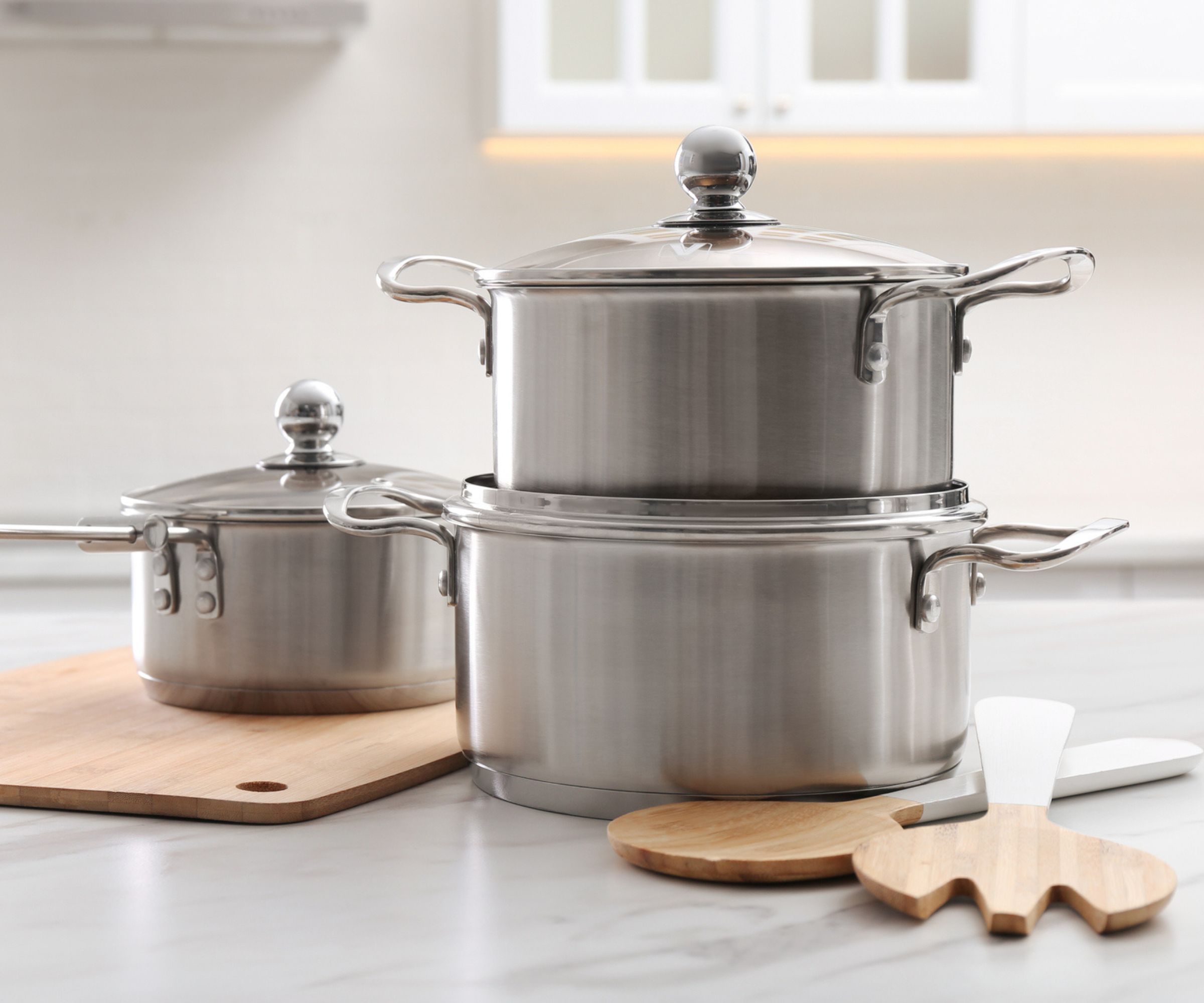
Concerns about aluminum cookware date back to the 1960s, when some scientific studies linked aluminum levels in the body with Alzheimer's disease. After decades of research, organizations like Alzheimer’s Research state there is a lack of convincing evidence that normal aluminum exposure increases Alzheimer’s risk.
Dr. Ryan Marino, medical toxicologist at Case Western Reserve School of Medicine, provides some clear and reassuring words of wisdom. He says: 'Aluminum cookware is considered safe to use. The amount of aluminum that cookware may contribute to food is usually minimal, usually far less than is already present in all of the foods we eat, and should not pose any health risk for most people using it as intended.'
However, there are certain common ingredients – and a few easy-to-miss mistakes – you’ll want to keep aluminum exposure to a minimum. Dr. Marino explains that cooking acidic ingredients in bare aluminum pots and pans can accelerate leaching, increasing the amount of aluminum that ends up on your dinner plate. 'Foods and recipes high in salt can have a similar effect on the aluminum pan as well,' adds Bryan Quoc Le PhD, food scientist and industry expert at Mendocino Food Consulting.
Stainless steel alternatives
If you frequently cook tomato, lemon or wine-based dishes, the experts suggest high-quality stainless steel pans as a safer alternative. This non-reactive material can cook salty or acidic food for long periods of time without metals leaching into your food.
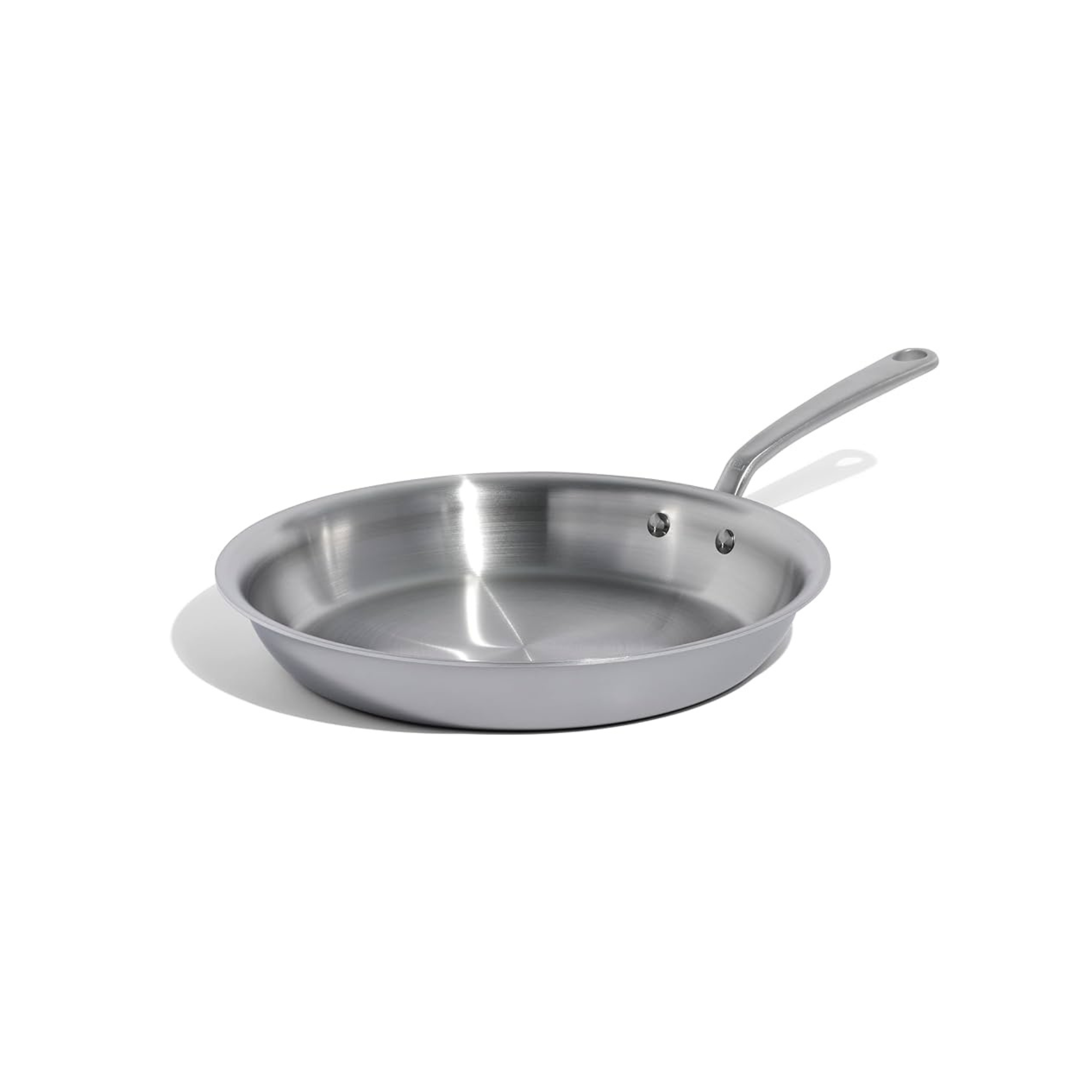
A trusted brand among restaurant chefs. Made In's stainless steel pan is not only non-reative, it heats evenly and the cooking surface is spacious. It is unexpectedly easy to clean, too.
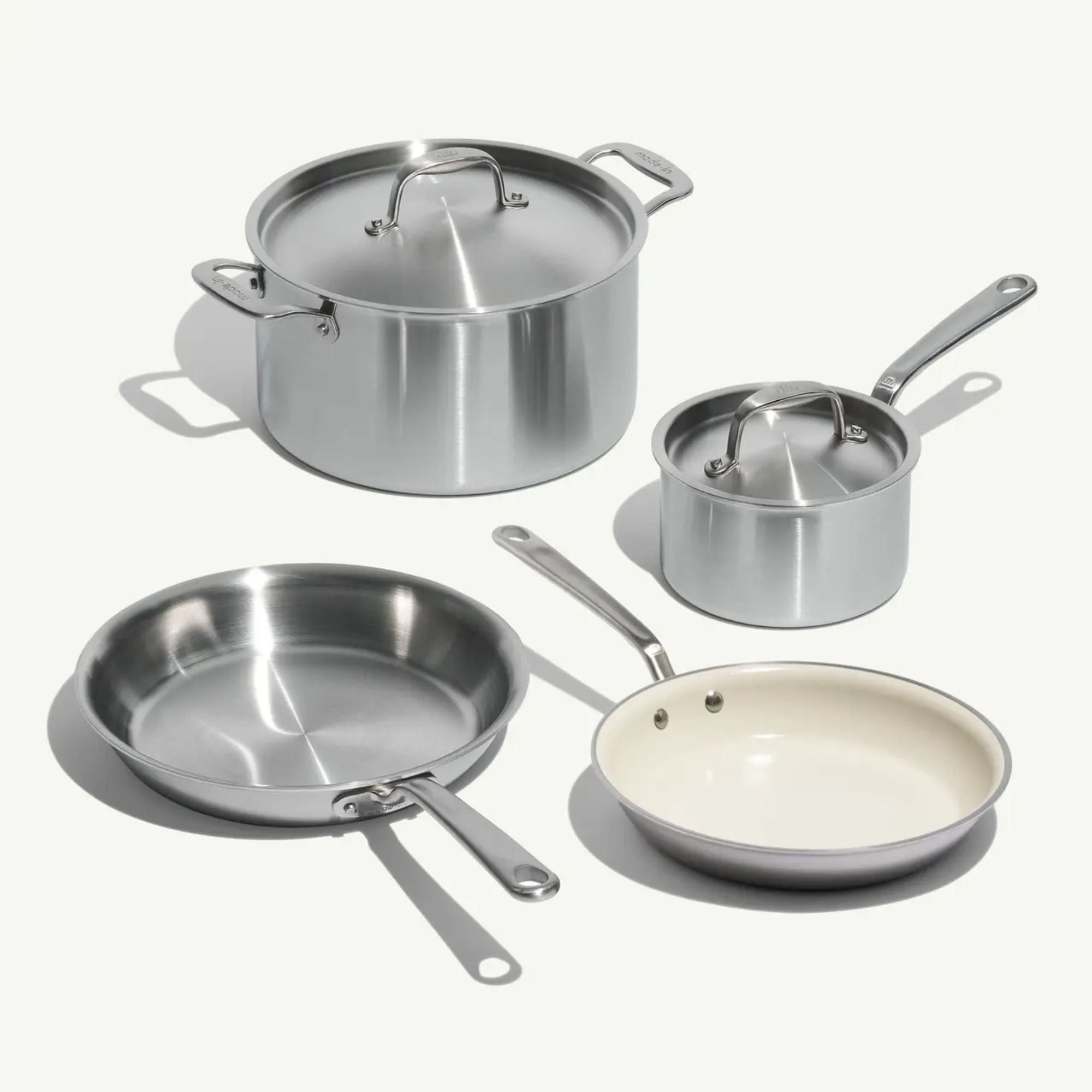
This is the most practical cookware set you can invest in. It has a stainless steel fry pan, stock pot and small saucepan, as well as a ceramic-coated pan for delicate tasks like frying fish and eggs. All non-toxic and highly durable.
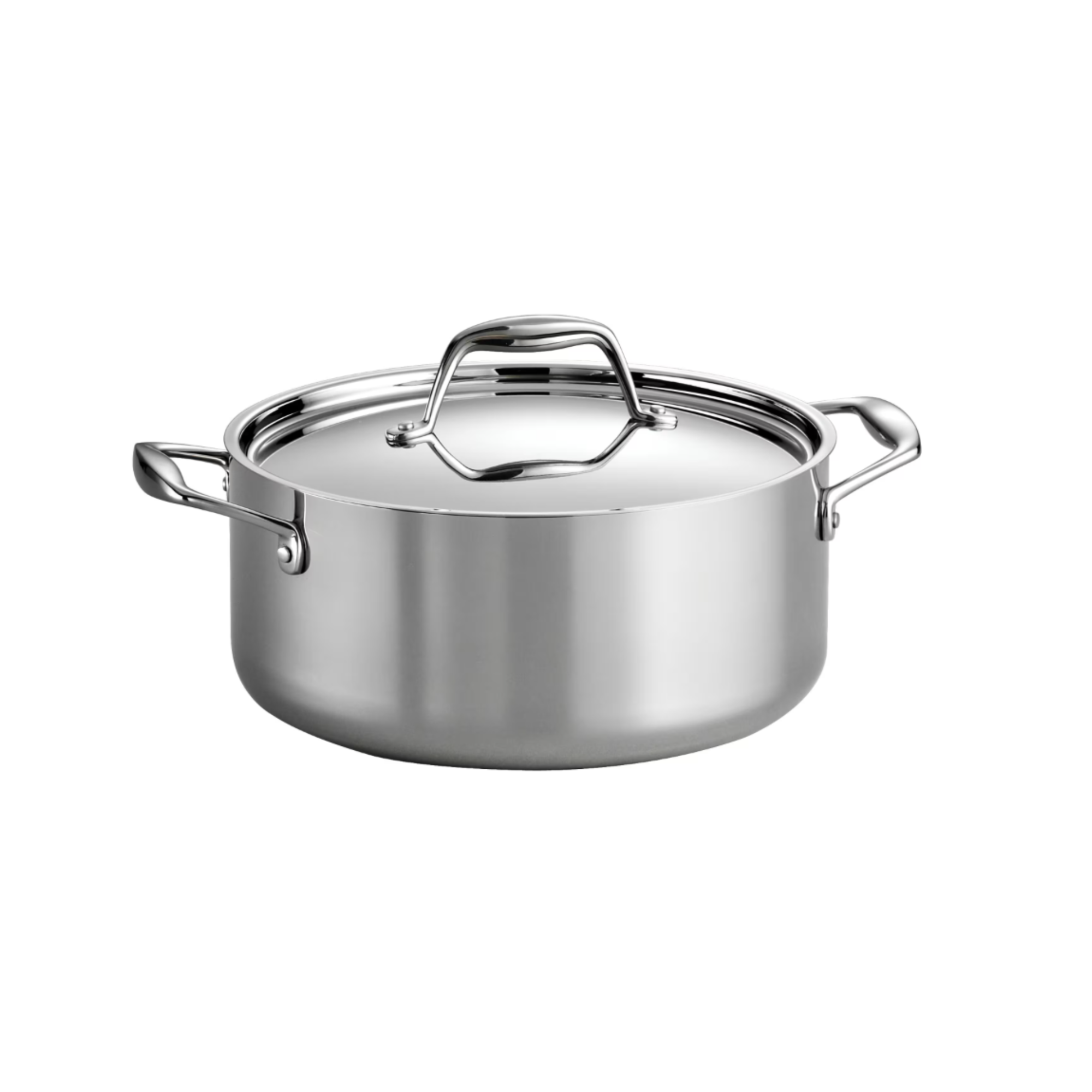
If you're keen to simmer sauces with salty or acidic ingredients, like a rich tomato Bolognese or a lime-packed Thai curry sauce, this pot is a safe option. The 18/10 stainless steel won't react with the ingredients, making it perfectly safe to cook with.
Dr. Jennifer Brandon, environmental scientist at Wild Beacon Consulting, says, 'What I worry about is not the aluminum itself, but actually the non-stick coating. Non-stick aluminum pans or aluminum foil often have been coated with a non-stick coating that contains PFAS, which are harmful 'forever chemicals.'
'These chemicals are in lots of everyday goods, but non-stick cookware is one of the most common routes of exposure. They cause increased cancer risk, reproductive harm, developmental delays in children, and increased risk of obesity, among other symptoms.'
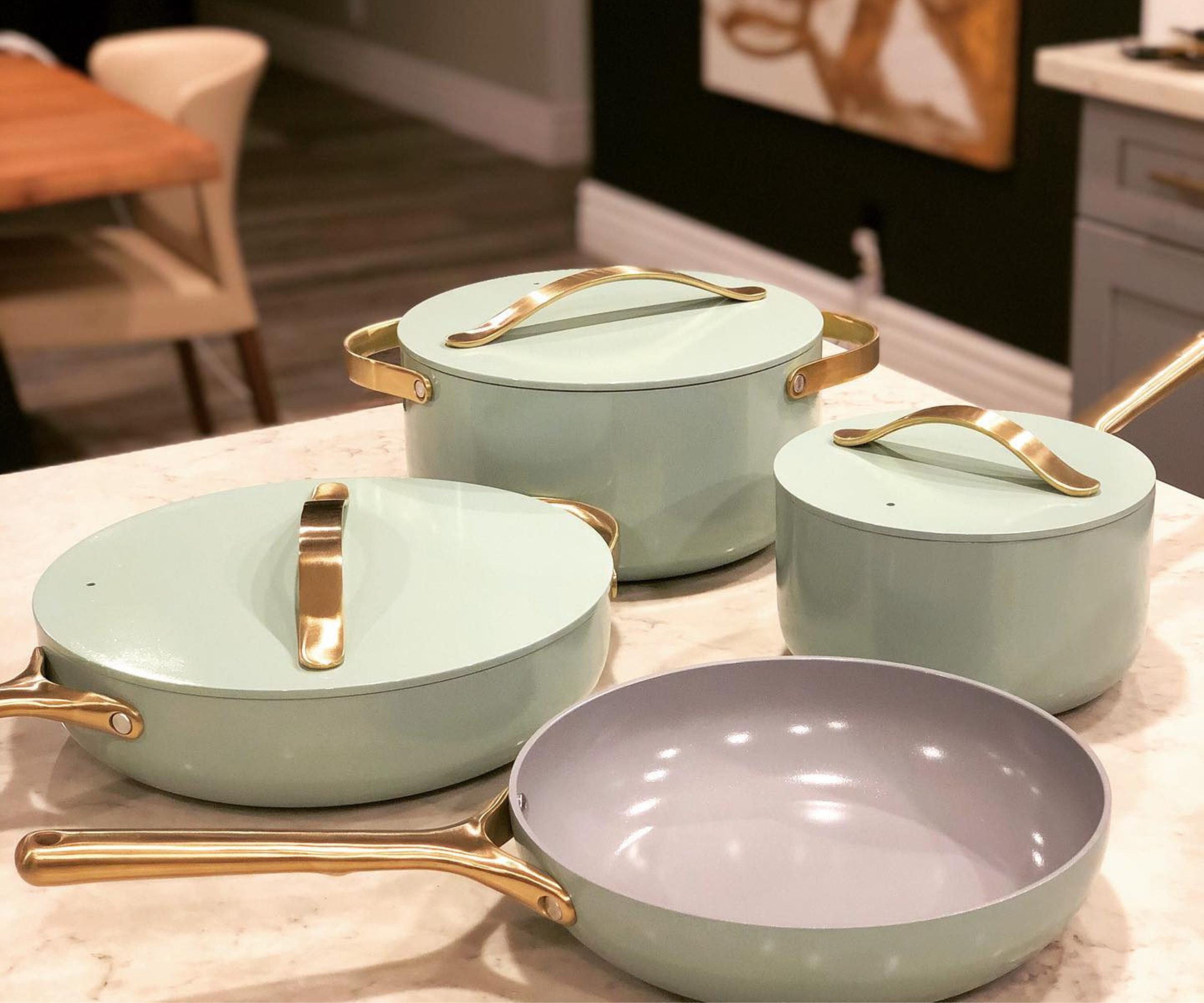
Hard-anodized aluminum or ceramic-coated aluminum are safer choices. Professional chef and food expert, Maricel Gentile, explains: 'Ceramic-coated aluminum gives you that non-stick surface without traditional chemicals and adds a layer of protection between your food and the metal. Just remember, ceramic coatings don’t like high heat or metal utensils, so be gentle and use medium heat with silicone or wooden tools.' The scientists agree – Dr. Brandon tells me that she replaced all of her Teflon pans with Caraway non-toxic ceramic-coated pans a few years ago.
Final thoughts
If you are keen to stick with your trusty aluminum pots and pans but want to avoid toxic exposure, simply avoid cooking those acidic ingredients in them and take good care of your pans. Dr. Brandon advises using newer aluminum pots (and discarding old pots that are damaged or are in bad condition) and using gentle utensils, such as wooden spoons that won't scratch the aluminum surface. By following these simple tips, you will be able to ensure a healthier kitchen set up.







